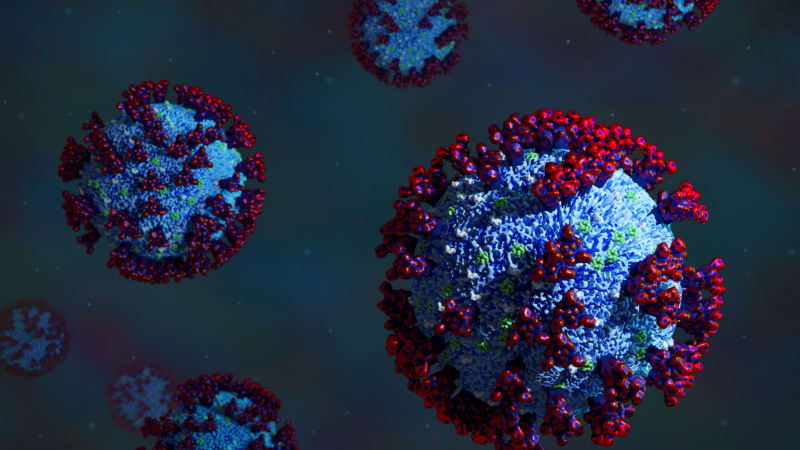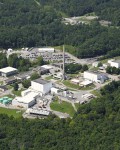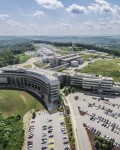The Department of Energy (DOE) is providing remote, rapid access to its advanced neutron source facilities at Oak Ridge National Laboratory (ORNL) to support research related to the COVID-19 pandemic. As part of the search for effective diagnostics and therapies, rapid access will be awarded for experiments that address exceptional and essential science and technical questions identified by the COVID-19 research community.
Neutron research has the potential to yield vital insights into the structure, dynamics, and function of viral proteins and their complexes with RNA and membranes—the components that enable viruses to function and replicate–as well as how they interact with potential antiviral inhibitors.
Through the Rapid Access program, ORNL is making available specific neutron beamlines at the Spallation Neutron Source (SNS) and High Flux Isotope Reactor (HFIR) for neutron research associated with COVID-19, including those used for macromolecular crystallography, small-angle scattering, reflectometry, spectroscopy and imaging. Rapid Access is intended to support scientists doing relevant work across many disciplines.
“Our Rapid Access program for neutron research at ORNL is designed to expedite outside user experiments related to COVID-19-related research and get them onto our beamlines in a matter of just days,” said Hugh O’Neill, team lead for the bio-labs within the Neutron Sciences Directorate. “Usually beam-time proposals are reviewed and selected bi-annually, on a highly competitive basis.”
Due to restricted access to ORNL, Rapid Access experiments will be performed by the laboratory’s internal staff, which offers a wide range of expertise, including neutron structural biology, biophysics, chemistry, and nanoscale materials science and engineering. The resulting data will be transmitted for analysis by the participating scientists at their own research institutions. ORNL’s internal staff will also collaborate with external scientists in designing the neutron experiments and assist in interpreting and analyzing the data.
The findings that result from the Rapid Access research could be used to help develop physical, chemical and environmental controls that affect the virus’ means of infection and replication, and to help guide the development of new diagnostics and therapeutics for the COVID-19 disease.
“Researchers wanting to use ORNL’s neutron research facilities should submit a short Rapid Access proposal briefly outlining the objectives and scope of the experiment,” said Dean Myles, the neutron instrument scientist heading up ORNL’s Rapid Access neutron science program. “A neutron facility scientist will coordinate the review of each proposal and respond within two or three days.”
An expert peer review panel, including virus research specialists from the National Institutes of Health and selected academic institutions, will make recommendations on each proposal. All prospective users must be registered and their home institution must have an active User Agreement with ORNL. Click here to view the Rapid Access proposal form.
Scientific and technical questions should be sent to Dean Myles at mylesda@ornl.gov. —by Paul Boisvert
SNS and HFIR are DOE Office of Science User Facilities. ORNL is managed by UT-Battelle LLC for DOE’s Office of Science, the single largest supporter of basic research in the physical sciences in the United States. DOE’s Office of Science is working to address some of the most pressing challenges of our time. For more information, visit https://energy.gov/science.







